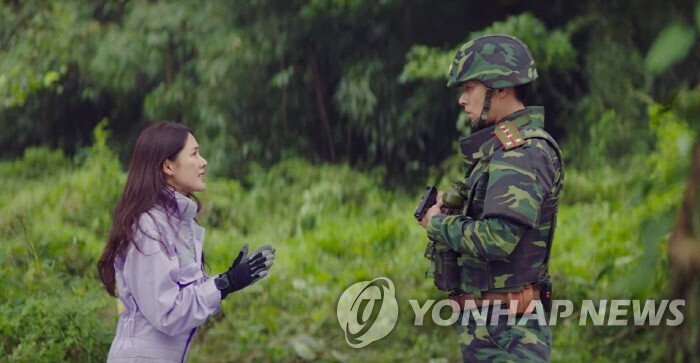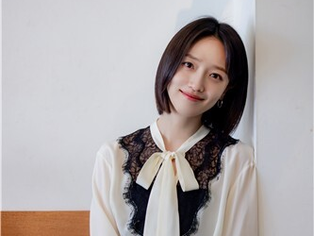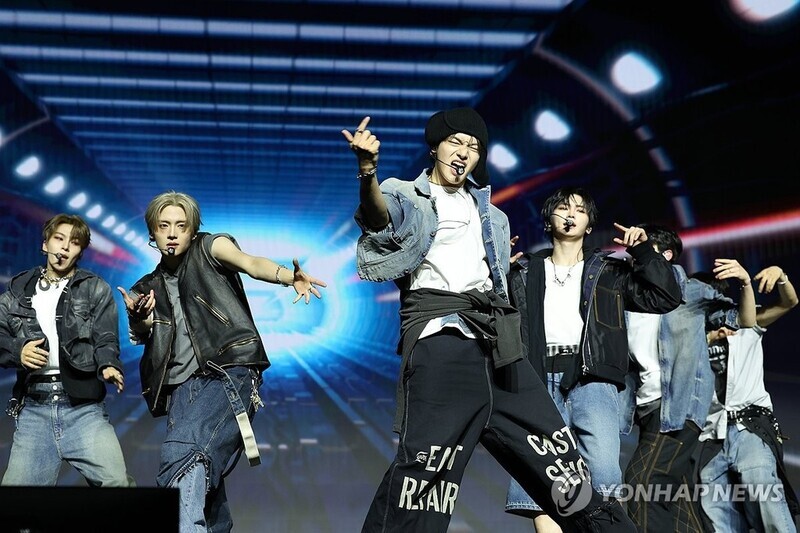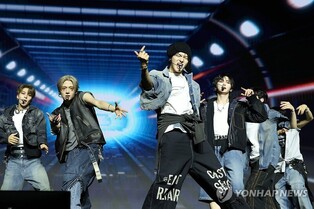 |
| ▲ This photo, provided tvN, shows 'Hometown Cha-Cha-Cha.' (PHOTO NOT FOR SALE) (Yonhap) |
 |
| ▲ This photo, provided by tvN, shows 'Crash Landing on You.' (PHOTO NOT FOR SALE) (Yonhap) |
SEOUL, Mar. 7 (Yonhap) -- British broadcaster BBC has reported on Monday that Korean dramas are gaining extraordinary popularity in India after the COVID-19 pandemic.
It is said that the characteristics of Korean dramas, such as bold genre mixing centered on somewhat exaggerated romance and the heroine who stands out in them, are similar to Indian Bollywood dramas in many ways, targeting Indian tastes.
Unexpectedly, the BBC has explained that the Korean drama landed in India in earnest thanks to the rebels in the northeast.
When rebel forces in the northeastern state of Manipur banned Bollywood movies in 2000, local residents were exposed to K-drama in search of other attractions, and later spread to other regions through word of mouth.
The Korean drama craze in India has been amplified by the COVID-19 pandemic. People accessed video streaming sites such as Netflix at home, where they indulged in popular K-drama, the BBC said.
In India in 2020, number of views for Korean dramas in Netflix increased by more than 370% compared to the previous year.
The BBC analyzes that K-drama is so popular in India because the content of the drama suits their taste.
In particular, unlike movies, dramas are made with women as the main audience, whether in Korea or India, so they have no choice but to resemble each other.
Korean and Indian dramas traditionally have strengths in melodrama, which is said to be catching women's hearts by sensibly portraying a somewhat exaggerated romance.
On top of that, the BBC has reported that Korean and Indian dramas are equally good at creating an immersive worldview.
As if the law of nature does not apply to dramas in these countries, it depicts a harsh reality, but attracts viewers by crossing incredibly exaggerated content like a bullet.
"Bollywood is good at mixing genres and changing tones, so you can put slapstick, action, romance, and dreamy stories in a single narrative," said Supriya Nair, editor of a popular magazine.
Korean dramas also guarantee a fairy tale-like happy ending, but they often give a continuous plot twist to break the development of the play.
Another point of contact between drama viewers in the two countries is the patriarchal family structure reflected in the play and the hierarchical structure of society, the BBC explained.
Whether it is a Korean drama or a Bollywood drama, the main plot is that this structure affects various issues such as who to love, what career to work for, and what women should do with their husbands' families.
“Hometown Cha-Cha-Cha,” which became popular in India, is a story about an ambitious city woman who goes to a scenic rural village and settles down and finds love there, similar to a plot of dramas that have been popular in India for decades.
Female viewers in India are especially attracted to Korean dramas because of the imposing appearance of the female character.
Regardless of the genre, the female character is portrayed wisely and shows her pioneering life away from romance, and does not stay around the male character.
The BBC mentioned “Weightlifting Fairy Kim Bok Ju” as an example of such a K-drama.
However, the BBC has pointed out that as the dramas of the two countries are similar, they have much to be desired in similar parts.
Stalking or using force against women is packaged as romance or infantilizing female characters.
Paroma Chakrabati, who runs a K-drama-related pop cast, pointed out, "In Korean and Indian dramas, jealousy is described as a feeling of love, and men's attempt to monopolize women is sometimes expressed as a devoted act."
(This article is translated from Korean to English by Yunhee Cho.)
(END)
(C) Yonhap News Agency. All Rights Reserved



































